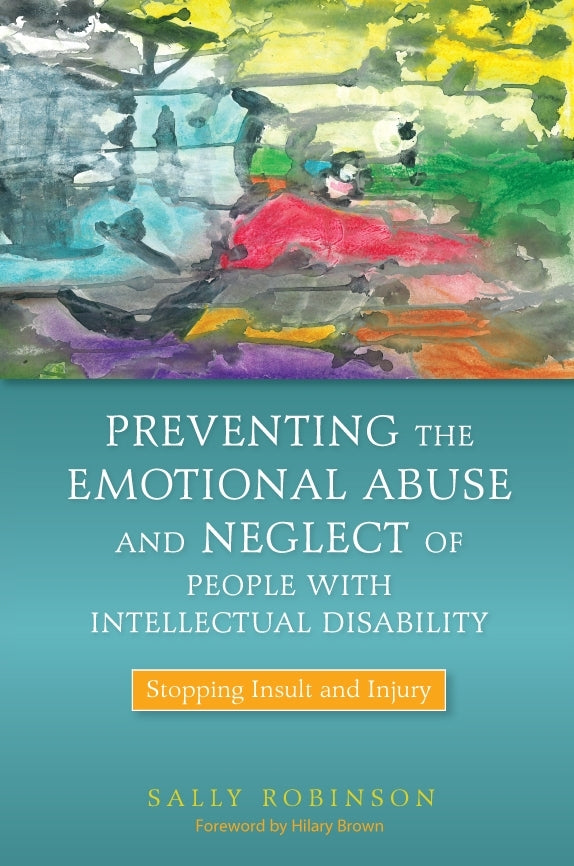
Press Reviews
from the foreword by Hilary Brown, Professor of Social Care, Canterbury Christ Church University
This is a powerful account of the emotional abuse that people with intellectual disabilities have to endure and manage in their lives... Sally Robinson has documented these stories with respect and great care. Her methodology is meticulous, and she joins a tradition of international researchers committed to putting the voice of marginalised groups into the public domain... [T]hese stories are rich and the words of people with intellectual disabilities and their families do not only inform but they rightly haunt us, as fellow citizens and as a society. Those of us who advocate on behalf of people with intellectual disabilities, whether as relatives, carers, service managers, professionals, academics, or policy makers will do well to listen and take heed.
Dick Sobsey, Professor of Educational Psychology, University of Alberta, Director of the John Dossetor Health Ethics Centre and the JP Das Developmental Disabilities Centre, Canada
Robinson has broken new ground here. Previous literature on abuse acknowledged emotional abuse as a problem, but focused strongly and physical and sexual abuse. For the first time, this book provides a conceptual framework for exploring and understanding the emotional abuse experienced by people with intellectual disabilities. She bases this framework firmly on a foundation constructed from the lived experiences of a number of individuals with intellectual disabilities. This work has the potential to open new lines of research and analysis and to facilitate change toward better lives for people with disabilities.
Ruth Northway, Professor of Learning Disability Nursing, Department of Care Sciences, University of Glamorgan
Statistics tell us that people with intellectual disabilities are at greater risk of abuse than are non-disabled people. We also know that while these figures are shocking they are probably only the tip of the iceberg as (for a variety of reasons) abuse is not always reported and acted upon appropriately. What the figures don't tell us, however, is the impact that such abuse has on the day to day lives of people with intellectual disabilities. This book reports the findings of a research study that not only sought to understand this impact but also focused on psychological and emotional abuse and neglect. These abuses generally receive less attention than physical and sexual abuse. Whether this is due to a view that they cause less impact than the physical scars and injuries caused by physical abuse or whether they are seen as less damaging to self-image and self-confidence than sexual abuse is unclear. However, by illustrating this impact on nine individual lives this book lays such myths to rest and demonstrates just how damaging psychological and emotional abuse and neglect can be. Moreover these effects are cumulative and long standing exerting an influence on the lives of people with intellectual disabilities for many years. Given that such abuse has been occurring for many decades, and given that it may be widespread, there could be a temptation to say it is just too difficult an issue to challenge and change. To take such a course of action would be inhuman and hence this book sets out areas for change such as culture, awareness, policy service evaluation and advocacy. Most importantly, however, Carol Robinson points out that this is not just a problem for disability services but rather that it is a problem for everyone. This book helps the reader to better understand what it means for people with intellectual disabilities who are subjected to psychological and emotional abuse and I would challenge readers not to experience a range of emotions including sadness, anger and feelings of injustice. However, what is most important is that it motivates readers to take action since as the closing words of the book say, "these lives matter".
